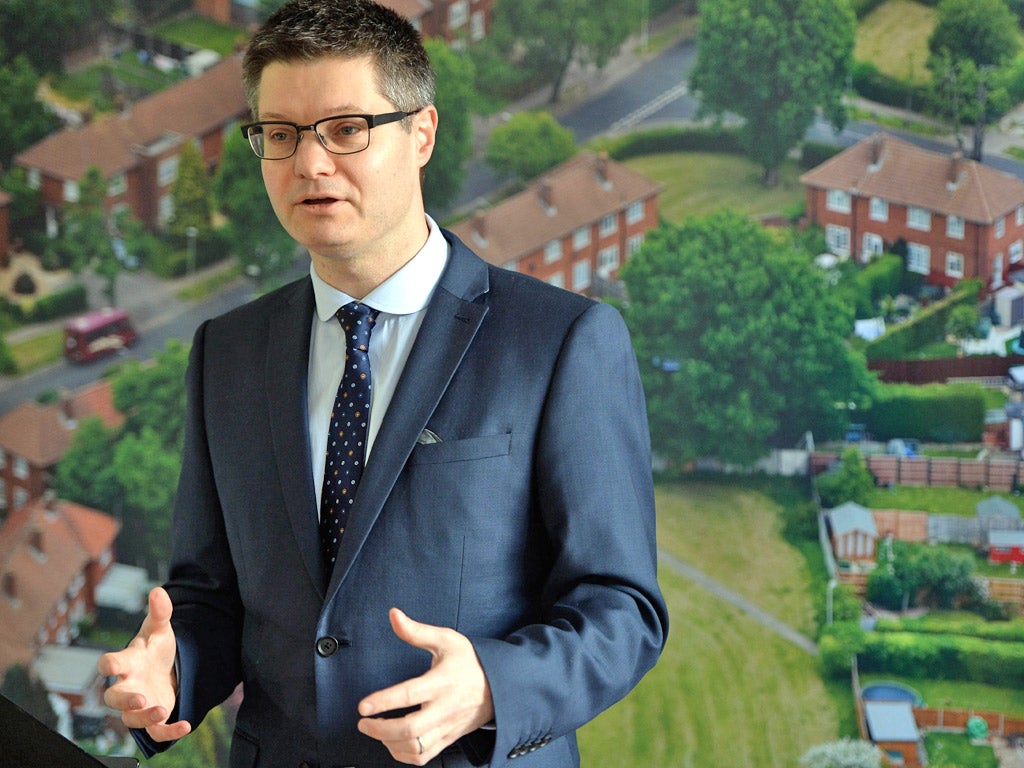Donate land for new generation of garden cities or suburbs, developers told
Report makes recommendations designed to help ease the plight of the 1.7m people currently on waiting lists for social housing

Your support helps us to tell the story
From reproductive rights to climate change to Big Tech, The Independent is on the ground when the story is developing. Whether it's investigating the financials of Elon Musk's pro-Trump PAC or producing our latest documentary, 'The A Word', which shines a light on the American women fighting for reproductive rights, we know how important it is to parse out the facts from the messaging.
At such a critical moment in US history, we need reporters on the ground. Your donation allows us to keep sending journalists to speak to both sides of the story.
The Independent is trusted by Americans across the entire political spectrum. And unlike many other quality news outlets, we choose not to lock Americans out of our reporting and analysis with paywalls. We believe quality journalism should be available to everyone, paid for by those who can afford it.
Your support makes all the difference.Developers who reap windfall gains from major Government projects such as HS2 and the Olympics should be required to donate land for a new generation of garden cities or suburbs.
A new report launched today urges politicians to seize the radical spirit of the 20th century garden city movement to help solve Britain’s bourgeoning housing crisis.
Among 10 recommendations designed to help ease the plight of the 1.7m people currently on waiting lists for social housing are the establishment of special funds providing low interest capital to community land trusts.
These would bankroll sustainable settlements and create desperately needed homes in the areas of greatest need, it is claimed.
Ed May, secretary general of Co-operatives UK which published the report Commons Sense, said the ideas were a genuinely radical way to help young people on to the housing ladder as well as improving the quality and reducing opposition to new developments.
“For housing, community and jobs, Britain now needs a new generation of garden cities. This is not just about pretty country cottages in well planned urban spaces.
“The garden city model, from the start, was for co-operative ownership of the underlying land, with the community benefiting from development that takes place on it,” he said.
The idea of garden cities, first realised in the UK by the social pioneer Ebenezer Howard at Letchworth in Hertfordshire, has become increasingly in vogue. David Cameron, Nick Clegg and Ed Miliband have all backed the idea as a way for Britain to plug a projected 1.5m shortfall of new homes by 2020.
Next year’s Wolfson Economics Prize is offering £250,000 for the best proposal for a new 21st Century garden city whilst the Policy Exchange think-tank recently urged whichever party won the next election to commit itself to creating at least one new such development.
The report’s authors highlight the extraordinary gains in value resulting from the building of the £3.4bn Jubilee Line extension in London in the 1990s. As a result of the new link land values within 1,000 yards of the 11 new stations increased four-fold to £13.5bn.
It is argued that planning permission and approval for such public investment should be contingent on those who benefit from the spectacular increase in land prices donating an appropriate area of land for co-operative ownership and control.
The report’s editor, Pat Conaty said that land accounted for approximately half the cost of a home in Western Europe.
“By taking sites out of the market and allowing the community to own the land, we can build housing and community facilities at roughly half the price. Moreover, any public investment into the community is shared by the community and not a small number of property speculators,” he said.
There are currently 50 established community land trusts in the UK with a similar number in the process of being set up.
The report’s authors found that the biggest barrier to creating garden cities was in securing long term capital investment.
They highlighted the work of the Cleveland Development Foundation in the United States which provided loans at one per cent interest rate to support local jobs and social enterprises including an urban farm and micro-energy projects in an effort to regenerate the run down inner city.
As well as providing commonly owned by the community for the benefit of residents, Howard’s plan for Letchworth included fully integrated public transport, municipally owned energy systems and growing space to feed the garden city’s population of 33,000. The report calls for these features should be included in the 21st century vision as well.
Join our commenting forum
Join thought-provoking conversations, follow other Independent readers and see their replies
Comments